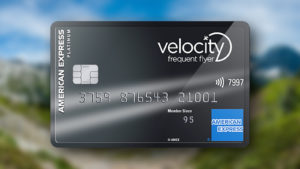The key to signing up for lucrative top-tier credit card offers often rests upon your income. After all, banks don’t want to extend a sizeable line of credit to someone who wouldn’t have the means to pay it back.
Minimum income limits are therefore set on most — but not all — rewards credit cards, particularly those in the ‘Platinum’ category or higher. There are multiple types of income that could be considered, so we take a look at how banks assess income for credit cards.
Note that this is a general list for guidance only. Different banks and issuers will have different criteria for income. Here are six aspects that contribute to a credit card minimum income requirement.
1. Salary
This is an absolute no-brainer: your salary will most likely form the bulk of your personal income. Some banks will want to know your gross (before tax) pay while others might only want to know your take-home pay. Remember to include overtime payments and bonuses where applicable.
If you work for an employer, have the latest three months of payslips handy. Ideally, these will be computer-generated and not hand-written.
If you’re self-employed, then you should have your two latest Notice of Assessments from the ATO to show earnings from those financial years. Additional reports might also be requested, such as from your accountant.
2. Rental income
Next up, declare any money you receive from renting out part or all of a property you own.
Documentation that may be needed includes a signed and current rental tenancy agreement, and/or evidence of the last three months of rental income credits within your bank account.
3. Investment dividends
Income from investments or other assets should also be declared. Generally, this might be verified through current statements or notices, or perhaps details from a recent tax return.
4. Self-funded retirement income
This scenario might include income from superannuation funds. If you have a Self Managed Superannuation Fund (SMSF), hold onto the most recent SMSF member benefit statement and a letter from your financial planner or accountant.
For retail or industry superannuation funds, then make sure you’re able to prove there are ongoing payments. Three months of bank account statements may suffice.
5. Government or Service pensions, Centrelink payments
If you’re receiving any type of government payment (e.g. pensions or benefits from Centrelink), this is income that should be declared too. Ways to verify this include showing bank statements covering three months or payments, or providing a letter from the government agency that confirms the payments you are receiving.
6. Maintenance payments
Child Support and other similar family maintenance payments count as income. If asked, provide the Maintenance Agreement or Child Support Assessment Notice that confirms the nature of the payments, or a bank statement that shows consecutive payments for a period of time that the bank wants to see.
Summing Up
While no means an exhaustive list, hopefully, this guide will help you think of all the types of income you may be receiving that you can include on your credit card application.
As applications are broadly assessed on your assets and income against your liabilities and other debts, it is in your best interest to declare all sources of income to ensure you meet the minimum income limit.
Be sure to have all supporting documentation on hand when applying, as chances are the bank will ask for you to upload the necessary documents to verify your income. Every card issuer will have different requirements (e.g. 3 months vs 6 months of statements), so read the guidelines carefully when submitting.
Want a broader overview of the credit card application process? Read our guide on what to expect with a credit card application.
Frequently asked questions
Minimum income requirements exist because banks do not want to extend more credit than someone can comfortably repay. As many top-tier bank credit cards have higher credit limits, a higher minimum income is required to apply for them.
You should not falsify your income on a credit card application. Banks in Australia are held to stricter standards now and proof of income is usually required.
There’s no standard answer to this. Some cards will be tailored to those with lower incomes and vice versa.

![Our roundup of credit card offers to know about this month [November 2024]](https://i.pointhacks.com/2017/06/23173719/credit-card-stocksnap-300x171.jpg)





The reason why they dont want me has to do with – you are only in it for the points. I cant fathom this writer saying over and over -why would you lend to people who little income. Easy – they have money to pay it off!!!!!
Recently I decided I wanted to preserve my frequent flyer points and apply for a new rewards cards with travel insurance. I applied to NAB for a $15,000 limit card and was knocked back because I was too rent reliant. (Yet they allow applications based on only two pay slips). I then applied to Westpac to have my $4.900 limit card increased to $8,000. That is .2 of 1% of my nett worth and just saw it also has been declined today.
My son two years ago had an $80,000 a year job with no other assets and the banks threw a $17,000 limit credit card at him. When Covid hit he lost his job and is now $17,000 in debt with no ability to pay.
I truly believe the banks in this country are not properly looking at responsible lending. Income is only a small part of serviceability.